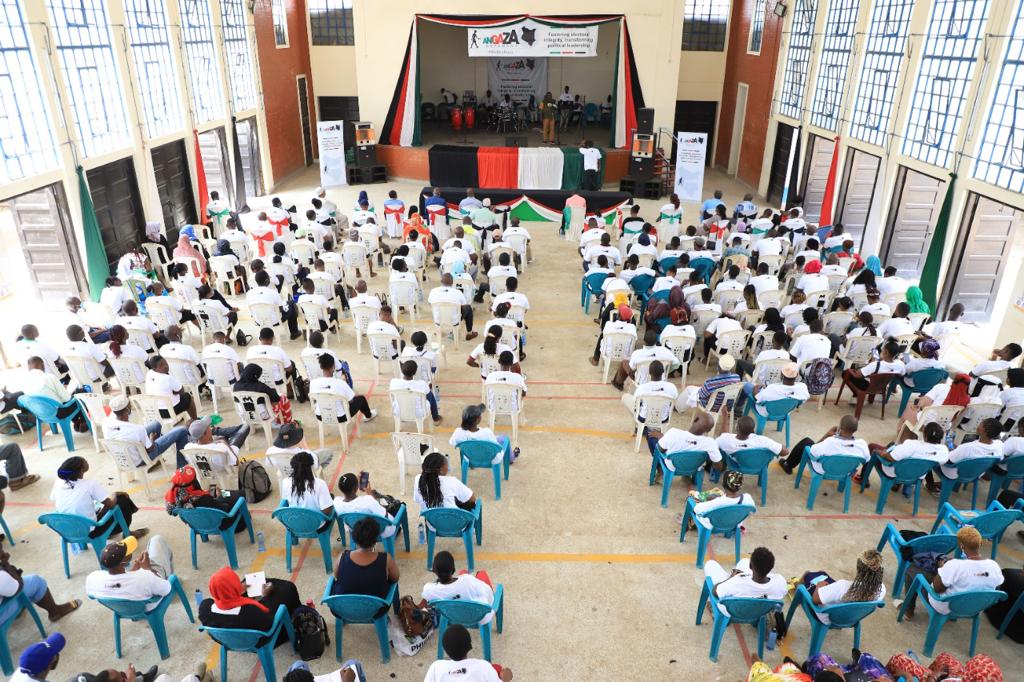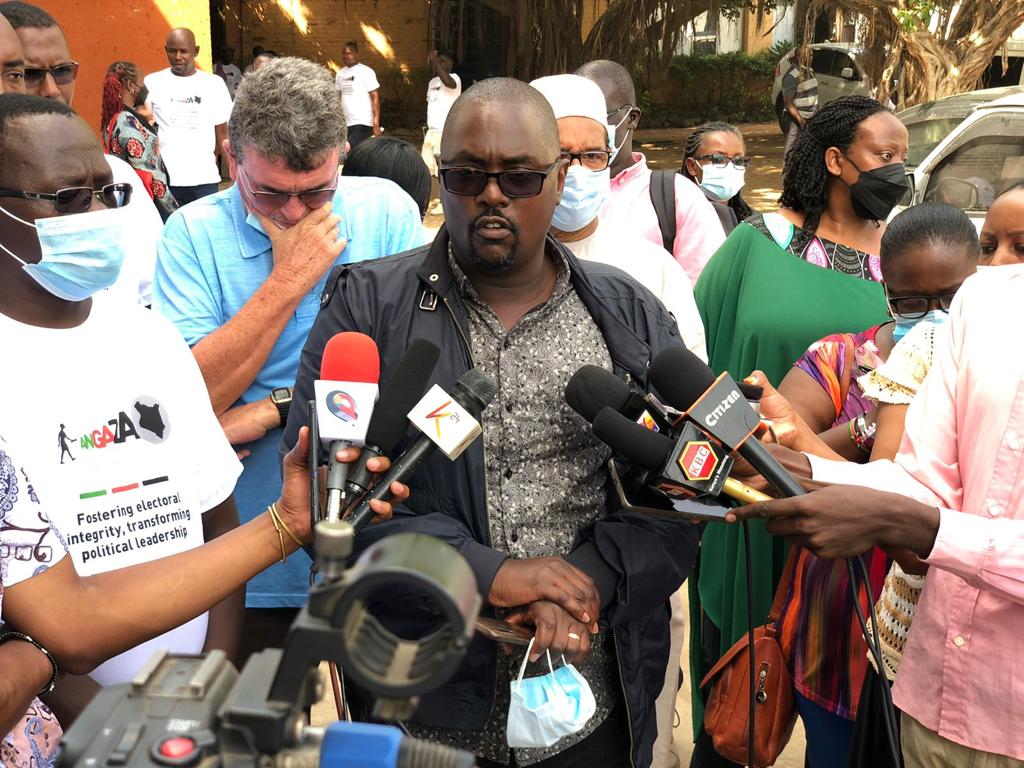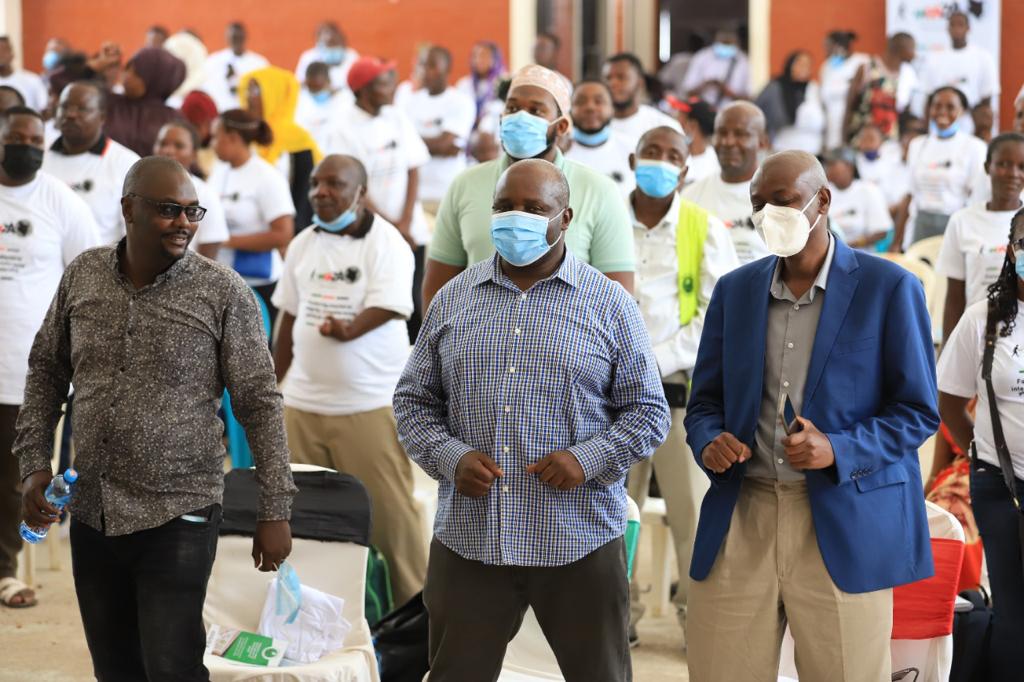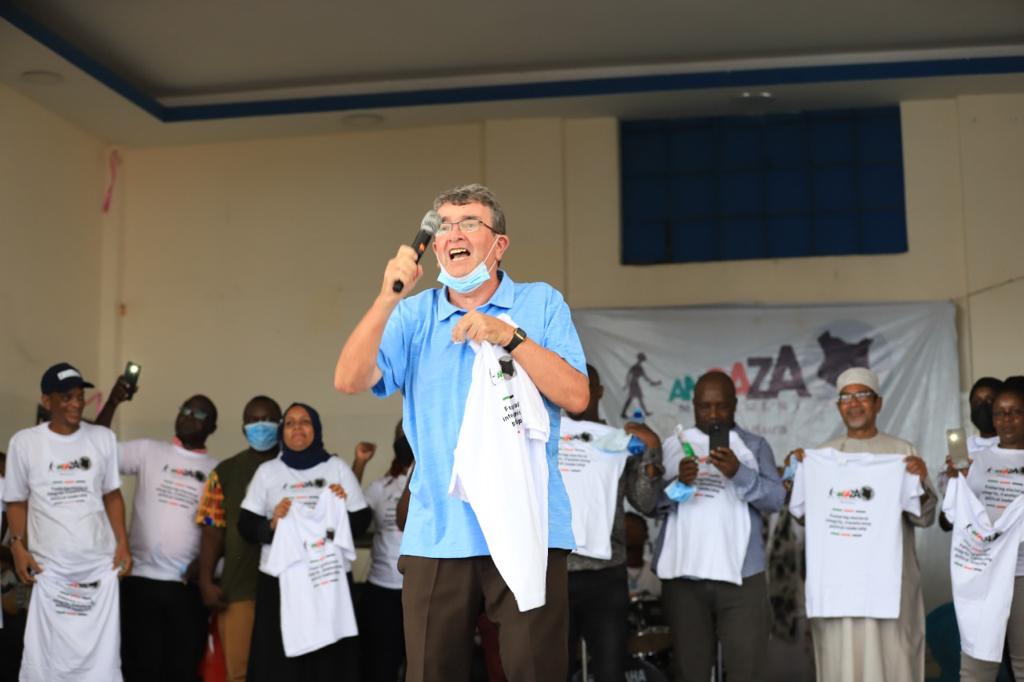Defenders Coalition hosted the annual HRD Academy, a week-long assembly of young and upcoming HRDs from across the 47 counties in Kenya to hone their skills on security management, monitoring documentation and reporting as well as debriefing. Moreover., the HRDs are exposed to networking and exchange on their working environments as HRDs.
The academy took place between 22 – 26 November 2022 where 111 Human Rights Defenders underwent a comprehensive learning and exchange experience.
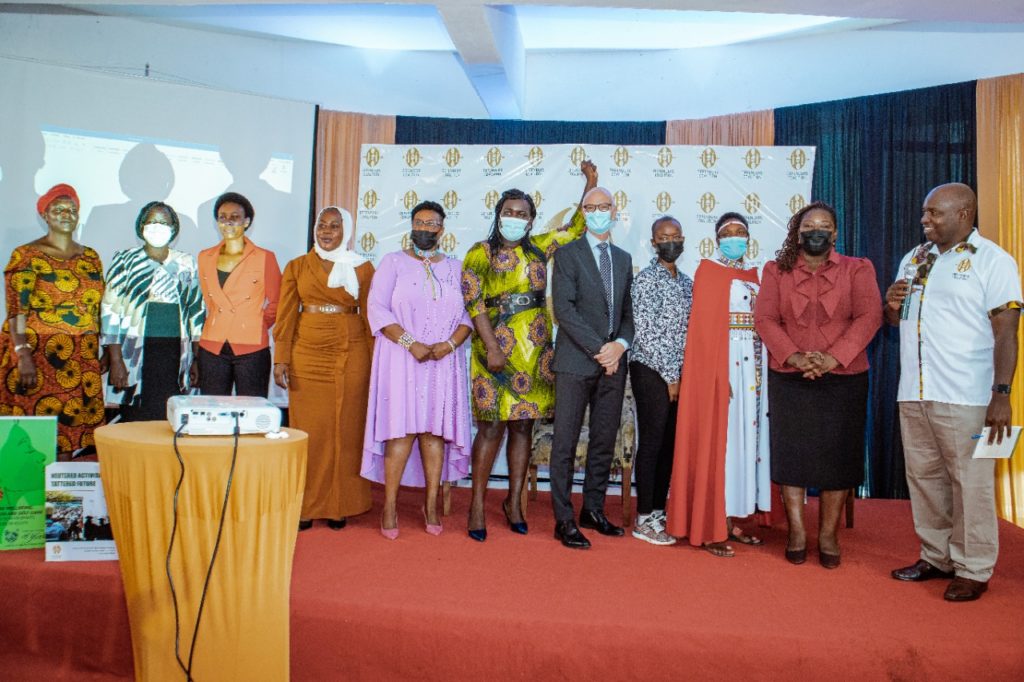
Defenders Coalition was able to realize the following through annual assembly of HRDs:
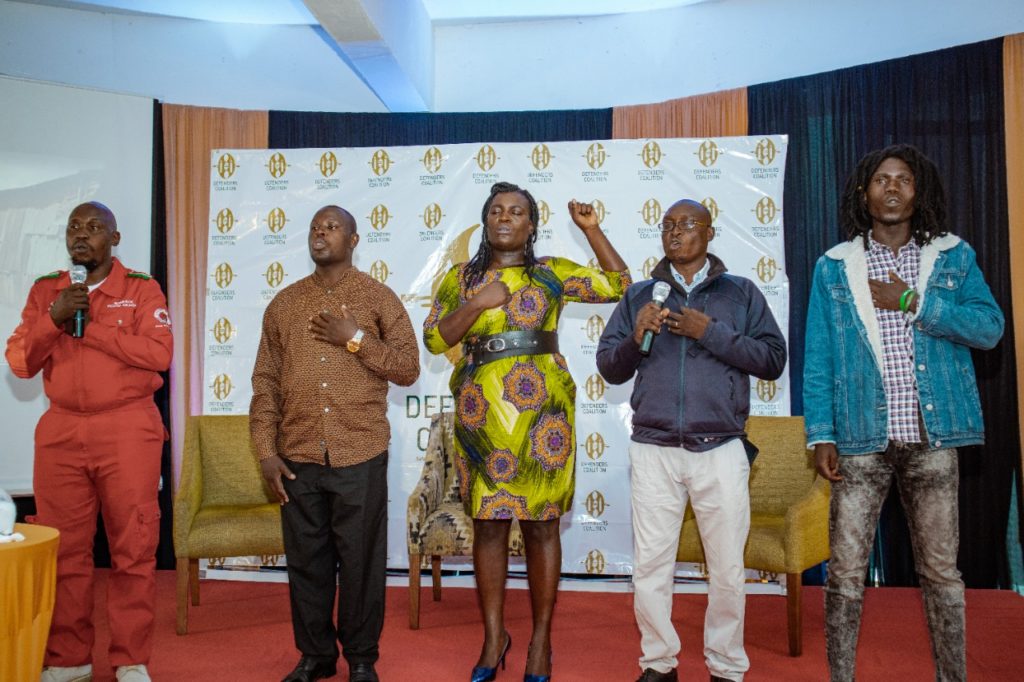
During the same period, the Defenders Coalition hosted the Annual Women’s Forum through the Ni Mama Project. After successful implementation of two years (Dec 2019 – Dec 2021), the Project has realized the following:
The Ni Mama Project, in partnership with the Embassy of Norway in Kenya, has commenced the second phase of its implementation and will focus on strengthening the existing networks further, strengthening and networking WHRDs from Mandera, Busia, Turkana, Migori, Kwale and Kajiado Counties for the years January 2022 – December 2023.
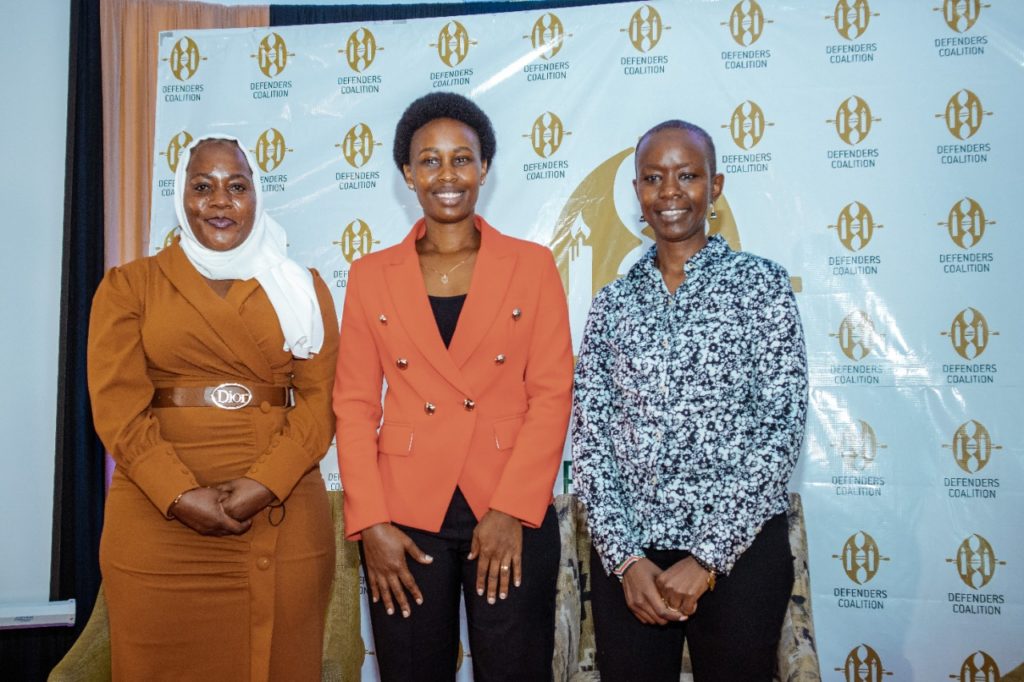
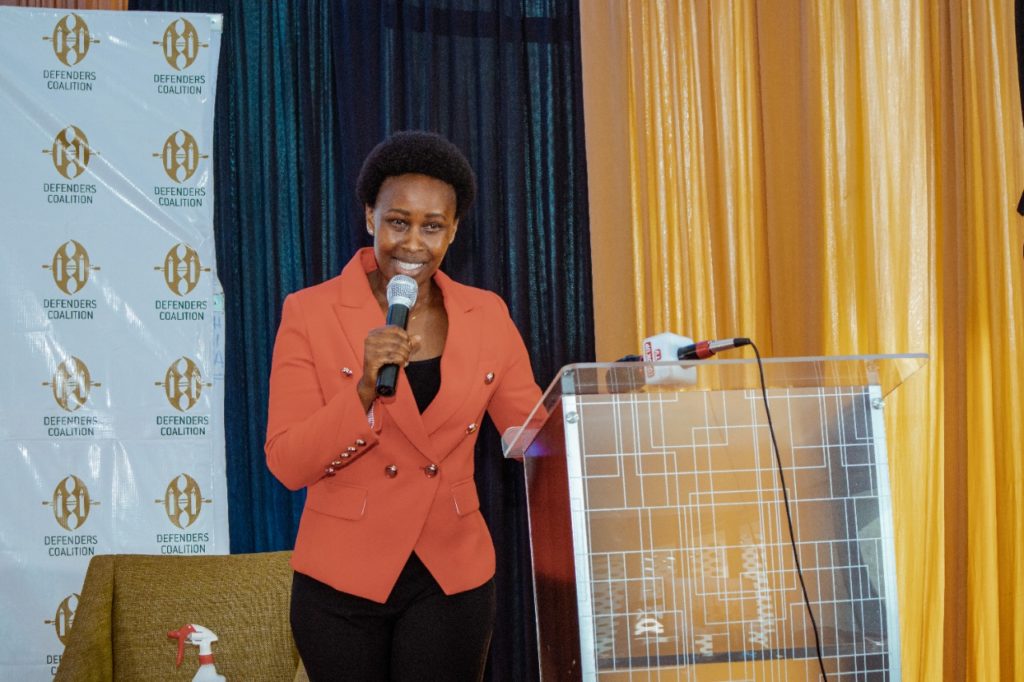
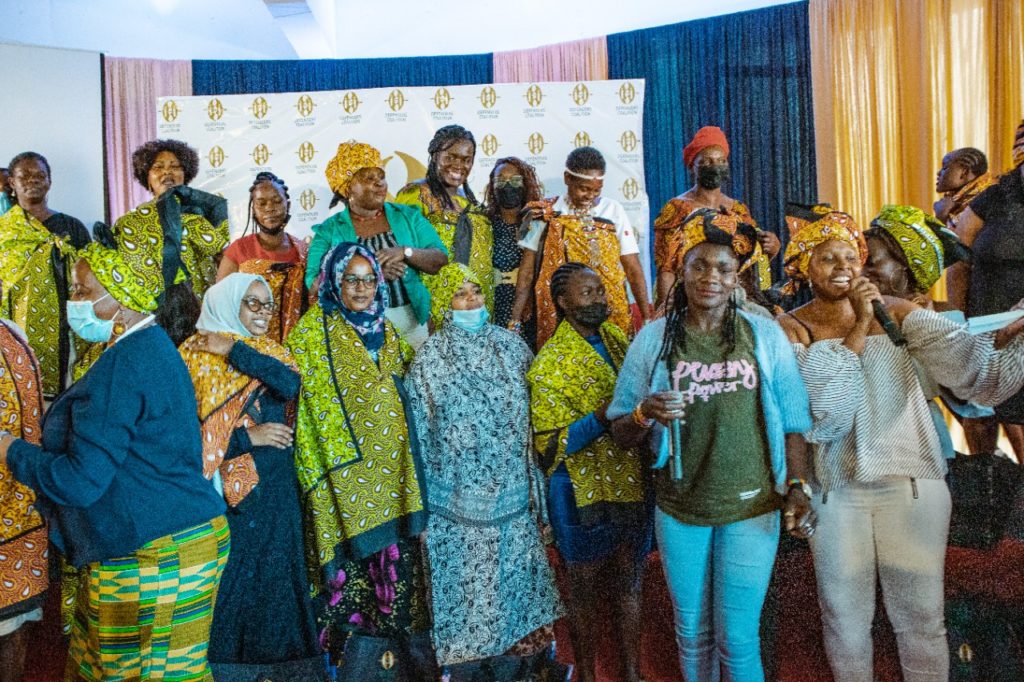
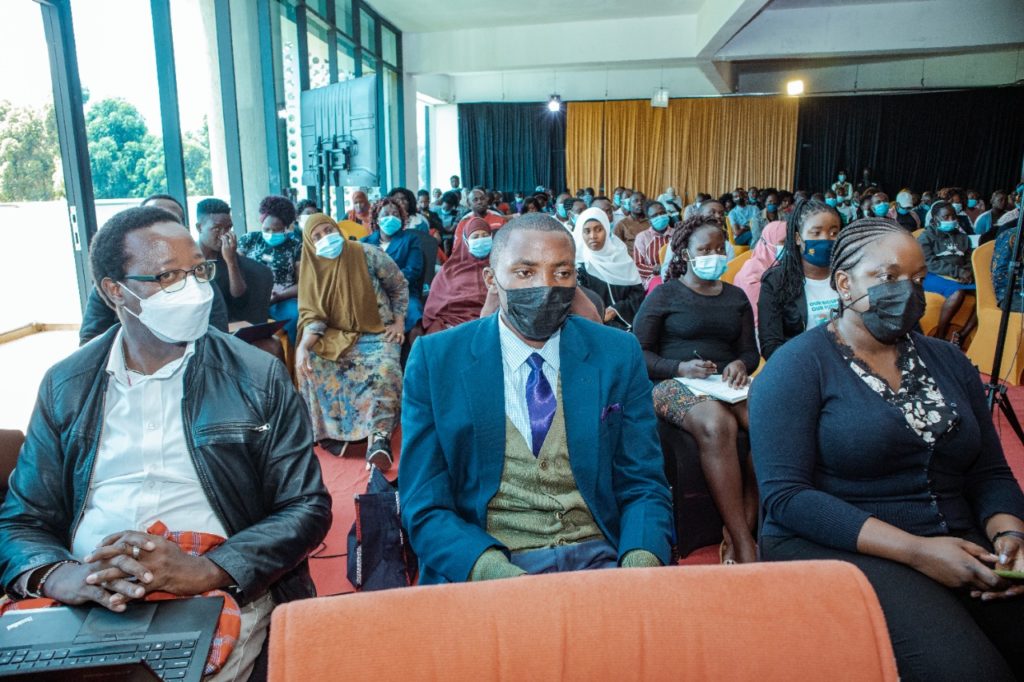
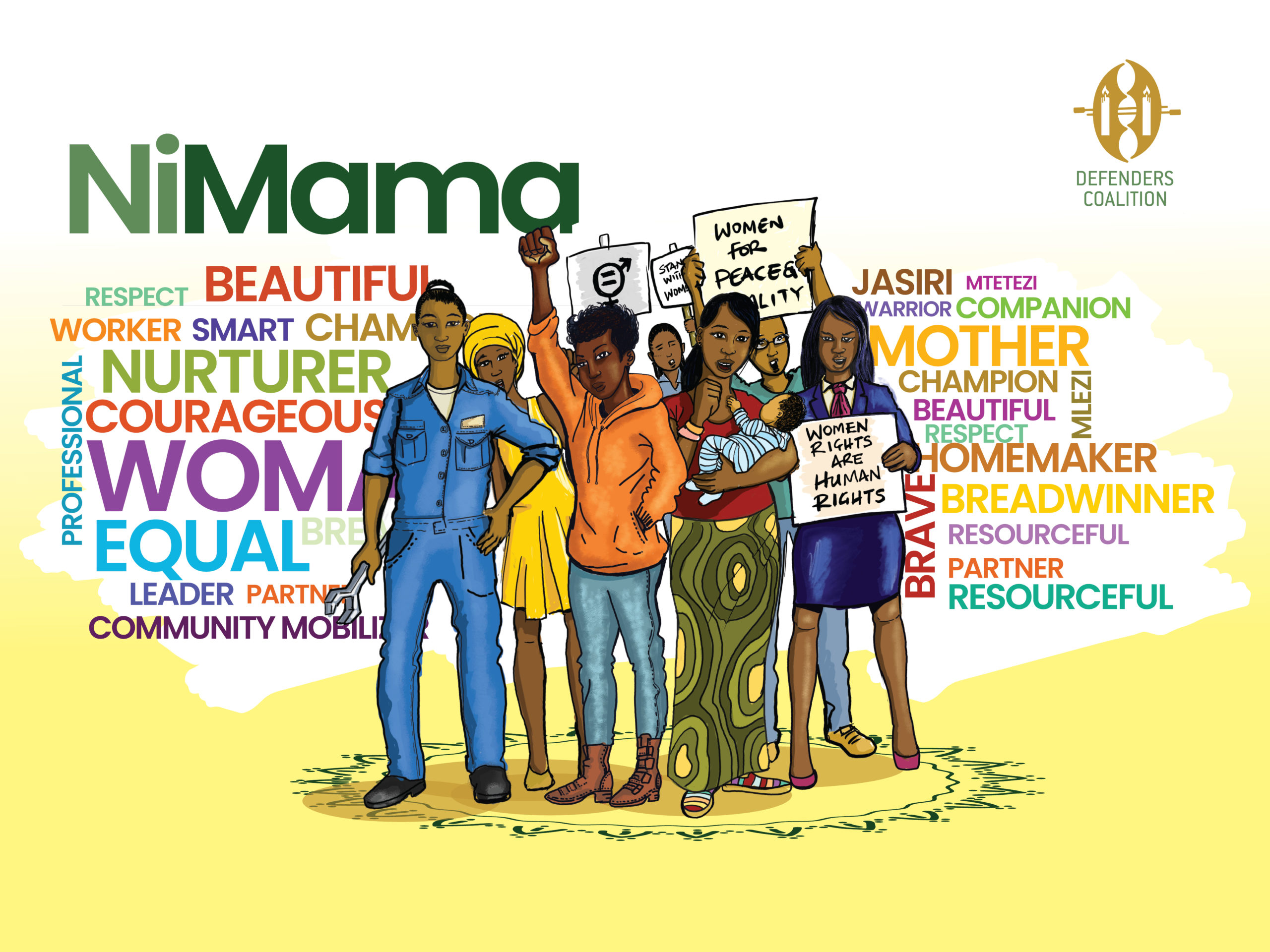
WHRD campaign opening message from Executive Director #NimamaVijijini #WHRDStories
Defenders Coalition, which is the National Coalition of Human Rights Defenders in Kenya is proud to announce the launch of its campaign #NiMamaVijijini #WHRDStories
The campaign will be deliberate in recognizing the contribution of Women Human Rights Defenders (WHRDs) in the promotion and protection of human rights in Kenya as well in various communities across the globe.
Defenders Coalition is happy that increasingly, the role of WHRDs in challenging violence against women and girls, advancing sexual and reporoductive health rights, environmental and climate justice and seeking economic justice for themselves and their communities is gaining momentum. It is a true testimony that their sacrifices have been self-telling but their stories of triumph and heroic acts remain untold.
Through this campaign in the months of March and April, we shall publicly acknowledge the fact that the term “woman human rights defender’ cannot be limited to just women but also those human rights defenders who engage in promotion and protection of women’s rights and gender equality as well as all women working on any issue related to human rights and fundamental freedoms, individually and in association with others in any region of the world.
While on this subject matter, our focus will be on the unique roles, risks, and vulnerabilities of WHRDs, including gender non-conforming individuals, active in the defence of human rights and who may become a target for attack or violation because of who they are—because they are women as well as for what they do—their work of defending human rights.
Throughout the campaign period, Defenders Coalition shall bring to light that in addition to gender, there are many economic, social, cultural and geographical factors that affect how WHRDs experience a violation and how best we can respond to their needs for safety, wellbeing and protection. We shall be creating a platform for bold conversations on how class, religion, age, language, sexual orientation, geographical location and ethnicity influence the nature of violations towards WHRDs because they are exposed to different forms of attacks including physical and online violence because of who they are and what they do.
We shall take the opportunity to underscore the convergence of the different types of violence that affect women and the difficulties in distinguishing between these different types of violence. We shall be sharing information on the lived experiences of the risks, threats and challenges that WHRDs have faced. We shall not stop there. We shall share stories of true power that lies within their grassroot organizing to overcome the risks, threats and challenges and for better communities.
We call on you to join us to positively influence the perceptions of WHRDs by members of the public by publicly recognizing their substantive contribution to human rights movements. More importantly, we urge you to support us in creating awareness on how best WHRDs can become self aware of their work and their identity as human rights defenders. This will build confidence among them so that they can take advantage of the existing capacity building, networking and protection mechanisms at their disposal.
We are honored by your continued support, partnership and the will to share your positive messages of Power.
Continue following us on your communication platforms including social media and our website to continue sharing the power stories as will be released during the period.
In Solidarity,
Kamau Ngugi
Executive Director – Defenders Coalition
On 3rd February 2022, a concerned parent called a teacher at St. Aquinas High School to ask about the well-being of her son and send pocket money through the teacher’s phone. The parent was informed that her son had been sent away from school due to school fees balance. This baffled the parent as she had fully paid school fees for her son. She wondered why the school did not communicate to inform her that her son had been released from school and the reason for doing so. When her son arrived at home, he was pale, sickly, and weak and looked extremely stressed. On enquiring whether he was okay, the son became teary and begged the parent that he be transferred to another school. He refused to eat stating that he did not have an appetite. On further inquiry, the son amidst tears wrote on a foolscap how he was defiled at the school. On calling the principal St Aquinas High School, the principal denied the happening of such acts in the school but would not explain why he had sent the son home.
Shortly after, the principal sent messages to parents indicating that this information was untrue and a rumour. No investigation or action has since been taken within the school to investigate the issue and take action against the culprit who defiled another student. More students from St. Aquinas have confided in their parents that defilement has occurred more than once within the school premises. We are concerned that minors are being subjected to such kind of humiliation, shame and pain that may affect them for the rest of their lives. It is utterly inconceivable that such a culture of tolerance of sexual abuse has been perpetuated by the principal of the school, a person who stands in a position of loca parentis with the children
Further, on 8th February 2022 the country witnessed in shock and disbelief as the police arrested parents demonstrating against the grave happenings at St. Aquinas High School. This is after the parents had followed all due processes under the law pertaining to holding demonstrations and served a notice on the OCS, Central Police Station.
Under Article 37 of the Constitution of Kenya, 2010, every person has the right to peaceful assembly, demonstration, and picketing. In the words of the late Justice Onguto, ‘Demonstrations and picketing…provide an avenue for those who have strong feelings about particular issues to express those feelings.’ The exercise of this right should therefore not be unjustifiably limited or treated as a criminal act. In Kenyan law and international standards, the role of the police is to in fact protect protestors in the exercise of this fundamental right.
The parents and other protestors were peaceful and unarmed. They had duly notified the police in accordance with the applicable law, the Public Order Act. We therefore reiterate that the arrest was unwarranted, unlawful and a gross violation of fundamental human rights and freedom.
We hereby demand the following:
Signed by the following Civil Society Organisations:
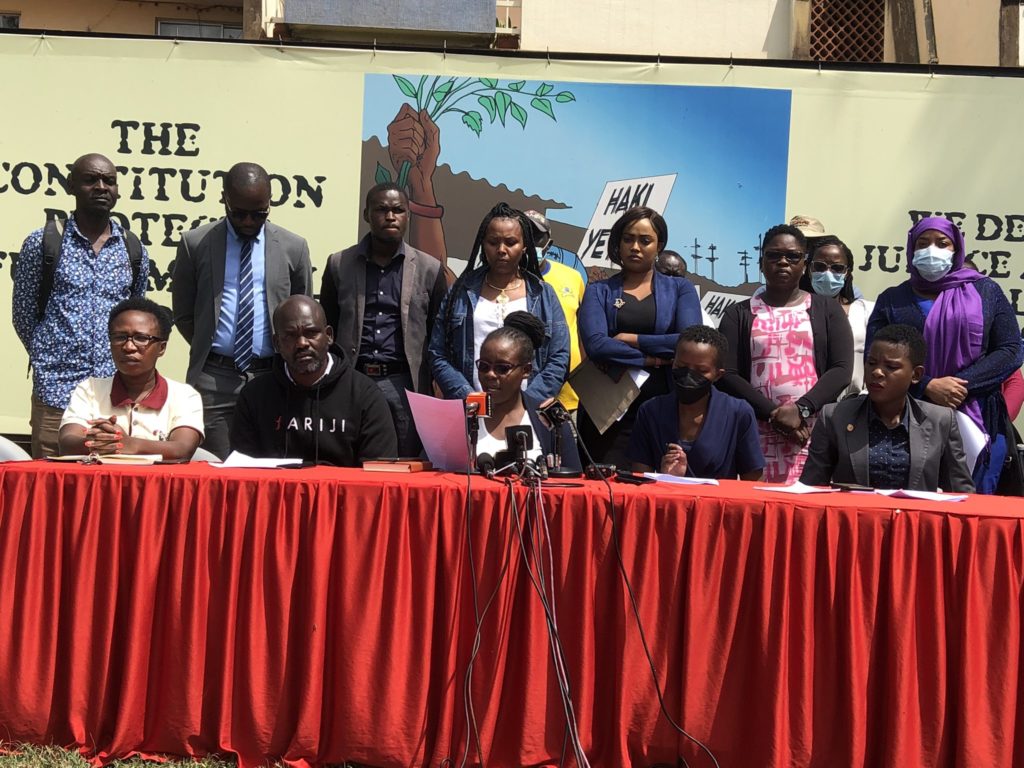
To: Clerk of the National Assembly
P.O. Box 41842-00100
Nairobi
From: Coalition of Civil Society Organizations
Date: January 7, 2022
RE: The Huduma Bill (National Assembly Bill No. 57 of 2021)
Dear Michael R. Sialai, Clerk of the National Assembly, & the Departmental Committee on Administration and National Security: We submit this memo on The Huduma Bill as a coalition of Kenyan civil society organizations with expertise in issues of identification, civil registration, nationality rights, data protection and privacy, minority rights, children’s rights, human rights, and other related issues.
The Huduma Bill is proposing the largest set of changes to the legal framework governing Kenya’s identification system since before independence. If enacted, the Huduma Bill would become the single law anchoring birth and death registration, issuance of identification cards, issuance of passports, and governance of the National Integrated Identity Management System (NIIMS, also referred to as Huduma Namba). As such, the draft legislation, system design, and all other decision points around NIIMS must be considered very carefully, comprehensively, and transparently.
In addition to the detailed analysis and recommendations that follow, we would like to call the Committee’s attention to several fundamental issues that must be addressed before determining whether or not to move forward with the Huduma Namba system.
● Public Participation: Given the extensive nature of NIIMS and that it will impact many areas of lives of all Kenyans, this bill and all related legislation and/or regulations require robust public participation across the country through which the government can receive and consider the views and suggestions of Kenyans and other residents of the country and incorporate them into the final version(s). At all steps in the legislative process, the government should provide full information by advertising opportunities to provide input into the Huduma Bill not only on print media and gazette notices, but also through social media, TV stations and radio to give room for more Kenyans to interact with the Bill and share their view. In-person public participation opportunities should be organized by the government in every county – in accessible locations, in vernacular languages, with sufficient notice, and with information (such as the latest copy of the bill) provided in advance to enable Kenyans to provide informed views. Following all public participation opportunities, including the current collection of memoranda, feedback should be provided to the public on what recommendations were received and how input has been taken into account in amending the bill or plans for NIIMS. The government must invest in building user trust and confidence on digital ID, including through meaningful and robust engagement on the anchoring legislation, the system design, and with the governing body for NIIMS.
● Risks of Exclusion: The Government must ensure all Kenyans can access identification documents such as birth certificates and national identity cards prior to moving forward with Huduma Namba. The draft bill does not sufficiently address concerns of exclusion that have been repeatedly raised over the past three years. It is critical to avoid importing issues prevalent in the current system of accessing birth registration, ID cards, and passports into the system proposed in this Bill. Those at risk of exclusion from NIIMS enrolment include Kenyans without identification documents, people with biometric challenges (such as unreadable fingerprints), persons with disabilities, street families and street children, and stateless persons. The High Court, in January 2020, also imposed a requirement on the government to establish a comprehensive regulatory framework that addresses how Kenyans without identity documents and people with biometric challenges can enroll in NIIMS – issues yet to be addressed in this bill or any existing regulations. Beyond risks of exclusion at the point of enrolment, there are no safeguards in the current draft bill to ensure against denial of services either for persons not enrolled in NIIMS or for those who are enrolled but who face challenges in the authentication or verification process at the point of accessing services or conducting transactions. Without significant changes, this bill will lead to the exclusion of millions of Kenyans and other residents in the country.
● Need for a Transition Period: The law must provide for a multi-year transitional period between the current Registration of Persons Act and the Huduma Act. The transition period must also address initial enrollment into NIIMS, in particular for those without registration documents and for those in the process of obtaining an ID card under existing laws. A transition period in which the focus is expanding coverage of birth registration and ID card issuance, prior to NIIMS enrollment, will help address challenges of those likely to be excluded from the system. A transition period would also allow for taking the public through proper civic education and comprehensive training of all government officials in registration and related agencies that would use NIIMS.
● Right to Privacy and Data Protection: The Government must ensure Kenya has a financially independent and well-resourced data protection authority, capable of discharging its mandate under the Data Protection Act. The government ought to ensure the swift adoption of the draft Data Protection Regulations (2021). Shall an individual misuse the biometric or personal data of a registered person, it can result into discrimination, profiling, surveillance of the data subjects and identity theft. The government must also ensure protection of whistleblowers who expose data misuse incidents.
● Policy Framework: Civil registration and identification are critical functions in a country as they provide individuals with a unique legal identity throughout their lives. Transitioning to a digital identity system such as Huduma Namba in a country where there exists a fragmented civil registration system is a complicated matter. The success of the Huduma Namba programme will be hinged on addressing the gaps and bottlenecks that have plagued Kenya’s civil registration and identification systems. There is a need for a holistic approach that is informed by evidence-based research, a comprehensive national policy on civil registration and identification, a robust strategy and an implementation plan with a clear road-map for the implementation of the Huduma Namba (NIIMS). The Bill, as currently drafted, is not informed by any of these foundational elements, which could portend challenges for the process of transition from paper-based systems, the current national identification card, and the various forms of identification under the numerous registration systems and government service providers.
● Governance and Institutional Framework for NIIMS: The NIIMS Committee proposed in section 65 is an oversight body and not sufficient to give effect to various rights that individuals have in the Constitution and in this draft bill (i.e., appeal a decision of a NIIMS Officer, update particulars, etc.). There is a need to establish an agency or commission as a competent, robust, and independent institution responsible for the planning, management, administration and implementation of NIIMS and the Bill. Such an agency would be in line with Sustainable Development Goal 16.6 to develop effective, accountable and transparent institutions. Please find attached a more detailed analysis and recommendations of selected sections – improvements to which would vastly strengthen the Huduma Bill and the NIIMS / Huduma Namba system, should it move forward.
We would be glad to provide further input and perspectives on the bill and how best to establish an effective, inclusive, and privacy-respecting identification system in Kenya.
Sincerely,
1. Heralding Development Organization
2. Undugu Society of Kenya (USK)
3. The Nubian Rights Forum
4. ARTICLE 19 Eastern Africa
5. Kenya Human Rights Commission (KHRC)
6. Kenya ICT Action Network (KICTANet)
7. Protection International Africa
8. Namati Kenya
9. Lawyers Hub Foundation
10. Defenders Coalition
11. Haki na Sheria Initiative
12. Haki Centre
WE, THE UNDERSIGNED, on behalf of our various organizations and the people of Kenya;
DRAW the attention of the House to the following: –
THEREFORE, your humble petitioners pray that the National Assembly, through the Departmental Committee on Administration and National Security:-
And your PETITIONERS will ever pray.
PRESENTED BY,
DATE: 19/02/2022
19 January 2020
Nairobi, Kenya
We, the undersigned civil society organizations, would like to express our deep concern at the recurrence of incidents of Hate Speech by a section of political leaders in political gatherings in the buildup to the 2022 general elections. We are alarmed at the continued and reckless utterances of a section of political class that may kindle political and social tensions, potentially sparking anarchy and social instability.
In the run-up to previous general elections, Kenyans witnessed numerous incidents of Hate Speech that have fueled violence and unhealthy competition during elections. The existence of robust legal and policy provisions that criminalize Hate Speech and the establishment of the National Cohesion and Integration Commission (NCIC) has not deterred the political class from uttering statements that could incite the citizenry.
With less than seven months to Kenya’s General Elections, the political class continues to utter reckless statements that result in violent incidences. In two days, The Office of the Director of Public Prosecution (ODPP) directed the Inspector General of Police (IGP) to launch a probe on Kitutu Chache South MP Richard Onyonka and Kericho Senator Aaron Cheruiyot over incitement claims. These actions come days after the arrest and arraignment of Meru Senator Mithika Linturi on charges of hate speech and incitement. The utterances made in political rallies can incite contempt, hatred, hostility, violence, and discrimination.
Kenya’s 2007, 2013, and 2017 elections were marred by post-election violence, evidencing the dangerous impact of politically instigated utterances. It is incumbent that the relevant Government agencies crack the whip on politicians that would undoubtedly amount to Hate Speech.
In this regard, we further condemn the continuous incitements and barrage of hate speech in social gatherings, social media, and political rallies by politicians in the strongest terms possible. We remind the political class inciting Kenyans of their solemn vow to uphold and defend the Constitution’s duty to protect the Nation’s interests and its citizens. Page 2 of 2
We, therefore, call on the following from relevant actors to do the following:
1. The Ministry of Interior and Coordination of National Government to maintain law, order, and security and preserve the authority of the state;
2. The NCIC to take stern action against perpetrators of Hate Speech discrimination as well as advocate for cohesiveness while promoting unity and equity in line with its mandate;
3. The Office of the Inspector General of Police (IGP) to promote integrity, efficiency, and accountability within the department of justice;
4. The Office of the Director of Public Prosecution to move with speed to prosecute all incitement and hate speech cases from NCIC;
5. The Churches, Mosques, and other religious institutions to work together to call out instances of hate speech within places of worship and further take the bold step of denying audience to persons who would use the opportunity to spread hate and division;
6. The Media to take a stand against covering and reporting matters that would cause incitement;
7. The IEBC to take note and not clear those found guilty of incitement from vying for political office;
8. The NCIC to monitor the political rallies and utterances made and document and report these matters;
9. The Judiciary to prioritise the cases once presented in court; and
10. Kenyans to report all cases of hate speech to the relevant authorities.
In conclusion, we wish to remind all Kenyans that we must maintain peace and condemn any person desiring to divide Kenyans as we march towards the upcoming elections. We call upon the political class to engage respectfully and soberly, appreciating that sensational statements may have dire consequences. We will not relent in protecting our interests as a nation and use elections as a mechanism to express democracy and call for a peaceful election.
Thank you.
Signed by the following Civil Society Organizations:
1. The Kenyan Section of the International Commission of Jurists (ICJ Kenya)
2. Kenya Human Rights Commission
3. The National Coalition of Human Rights Defenders (Defenders Coalition)
4. Social Justice Centers Working Group
5. Constitution and Reform Education Consortium (CRECO)
6. Protection International – Africa
7. Women Human Rights Defenders Hub
8. Article 19
The National Coalition of Human Rights Defenders (Defenders Coalition) works primarily to champion the safety, security, and wellbeing of human rights defenders (HRDs). Among other pathways, the Defenders Coalition does this through strengthening the capacities of HRDs to work more effectively, besides advocating for favourable legal, policy and institutional environments to reduce their vulnerability to the risk of persecution and/or harm. The Defenders Coalition believes that every individual is entitled to the rights and personal liberties, security, and social justice; and that HRDs play a frontline role of advancing the realization of these rights and freedoms as guaranteed by the Constitution of Kenya 2010.
The Elections Coordinator will lead in preparation and support services for monitoring and observing elections. It includes arranging for all logistics and administrative requirements to deploy and repatriate election monitoring teams, transport and equipment.
Some of the major responsibilities include equipment procurement, financial and contractual aspects of the project implementation and coordination with the Elections monitors across the country. The ideal candidate must have good negotiation, planning and coordination skills, embrace working independently, but also collaboratively as part of a larger team.
Responsibilities
Qualifications
Application Procedure
Interested candidates who meet the above qualifications should apply via recruit@gocreations.co.ke to reach us no later than Friday 14th February 2022.
The National Coalition of Human Rights Defenders (Defenders Coalition) works primarily to champion the safety, security, and wellbeing of human rights defenders (HRDs). Among other pathways, the Defenders Coalition does this through strengthening the capacities of HRDs to work more effectively, besides advocating for favourable legal, policy and institutional environments to reduce their vulnerability to the risk of persecution and/or harm. The Defenders Coalition believes that every individual is entitled to the rights and personal liberties, security, and social justice; and that HRDs play a frontline role of advancing the realization of these rights and freedoms as guaranteed by the Constitution of Kenya 2010.
We are looking for a Protection Manager to oversee and support all aspects of general safety and security programming services and ensure that appropriate activities are developed in response to issues being raised by human rights defenders and communities.
He/ she will be responsible for creating linkages between the M&E and legal assistance team. The protection manager will engage in external representation and coordination with other relevant actors as well as participate in local‐level coordination forums.
Duties and Responsibilities
Education/Experience Requirements
Application Procedure
Interested candidates who meet the above qualifications should apply via recruit@gocreations.co.ke to reach us no later than Friday 14th February 2022.
The National Coalition of Human Rights Defenders (Defenders Coalition) works primarily to champion the safety, security, and wellbeing of human rights defenders (HRDs). Among other pathways, the Defenders Coalition does this through strengthening the capacities of HRDs to work more effectively, besides advocating for favourable legal, policy and institutional environments to reduce their vulnerability to the risk of persecution and/or harm. The Defenders Coalition believes that every individual is entitled to the rights and personal liberties, security, and social justice; and that HRDs play a frontline role of advancing the realization of these rights and freedoms as guaranteed by the Constitution of Kenya 2010.
We are looking for an Advocacy Manager. This position will support the implementation of the organisation’s cross-disciplinary strategic priorities including an action plan to complement the overall plan.
The ideal candidate is one who understands the civil society space in Kenya, is an excellent networker and convener, is at ease in all levels of advocacy influencing. An extensive experience in policy, promotional and advocacy work and must have experience working in a membership organisation, bring strategic, creative and critical thinking, embraces working independently, but also collaboratively as part of a team with other departments as well as partners.
Responsibilities
Education/Experience Requirements
Application Procedure
Interested candidates who meet the above qualifications should apply via recruit@gocreations.co.ke to reach us no later than Friday 14th February 2022.
Press Statement
Mombasa, January 27, 2022
PROTECTING INTEGRITY AND ACCOUNTABILITY IN KENYA’S ELECTIONS
On Friday, January 21, 2022, the Independent Electoral and Boundaries Commission (IEBC) officially gazetted Tuesday, August 9, 2022 as the date of the third General Election under the Constitution of Kenya, 2010. In releasing the elections calendar the IEBC sought to assure Kenyans that the up-coming General Election would be free, fair and credible as required by the Constitution.
In the run-up to the 2022 General Elections, we, The Angaza Movement (TAM), a national and grassroots collective of active citizens and Civil Society Organisations, are deeply concerned about the state of preparedness among critical institutions charged with the management of elections, their capture by various State and sectarian interests, and the entrenched culture of impunity.
Every election in Kenya has been bungled since 2007. Kenya is still burdened by unresolved putative elections, which has deeply undermined public confidence in the integrity of the electoral process. The underwhelming performance of the IEBC in the ongoing registration of voters, compounded with a perennially problematic voters register does not inspire confidence that the election will be free, fair or credible. We are deeply concerned that IEBC has deliberately refused to learn from the dismal performance of the Enhanced Voter Registration last year. There is no evidence that it has engaged the National Registration Bureau to satisfy itself that the delayed release of identification documents is not suppressing voter registration. Voter registration is being carried out in the absence of civic education and awareness and bottlenecks in accessing identity documentation could deny citizens their political rights.
The IEBC has papered over many of the legal and administrative changes the Supreme Court ordered in 2017 after nullifying the presidential election results on account of glaring illegalities and irregularities. The IEBC is hollowed out, and bereft of institutional memory because of unfilled vacancies in the commission and the secretariat. Many of the individuals who left the electoral management body in disgrace have been rewarded with appointments to sensitive positions that could affect the conduct of elections.
The arrant refusal by the state to adequately and timeously fund the electoral management body, inordinate delays in effecting appointments and last-minute changes to the law undoubtedly destabilise the context in which elections will be held.
The government has frustrated the electoral management body including denying the opportunity for any auxiliary elections funding from other development partners.
The fragile security around the country, characterised by incidents of violence in Baringo, Laikipia and Lamu counties and headlined regularly by extra-judicial executions, forced disappearances and a general breakdown in police discipline signal that the window for delivering a credible, free and fair election is shutting. Past elections have been determined by the use of violence against women and other vulnerable groups, with no accountability for sexual and gender-based crimes. SGBV has become a defining feature of political violence employed to curtail women’s participation in the country’s governance. There can be no free or fair election in a violent environment ring-fenced by impunity.
The IEBC, political parties, the legislature and the Executive continue to defy the Constitution and the courts to promote the inclusion of women, youth and persons living with disabilities. An election held in such a context cannot be said to be free, fair or credible.
The IEBC and other state agencies have deliberately refused to uphold and enforce obligatory integrity standards. It has failed or refused to underwrite democracy in political parties, which are publicly funded, by requiring them to meet the constitutional requirements of transparency and accountability in their political processes. IEBC and other institutions have bowed to political interests that suppress the good of the people, their safety, security and democracy.
The Angaza Movement believes that Kenya has the capacity to conduct free and fair elections. Chapter Six of the Constitution defines the standards for leadership and integrity. We are calling on every Kenyan citizen to do that which the IEBC and other state institutions have failed to do: Put integrity at the head of this election.
1. KENYA HUMAN RIGHTS COMMISSION (KHRC)
2. INTERNATIONAL COMMISSION OF JURISTS (ICJ- KENYA)
3. ARTICLE-19
4. DEFENDERS COALITION
5. INFORMACTION
6. CSO-NETWORK
7. MIDRIFT HURINET
8. INUKA KENYA NI SISI LTD
9. JOURNALIST FOR JUSTICE (JFJ)
10. THE COMMUNITY ADVOCACY AND AWARENESS (CRAWN) TRUST
11. MUSLIMS FOR HUMAN RIGHTS
12. HAKI YETU
13. MAZINGIRA INSTITUTE
14. KATIBA INSTITUTE
